The year coming to an end is a globally unsettling one. It would be interesting how people view the hardships they faced during this unusual year of 2020 and what silver linings they saw as well as what the incoming year means to them.The Irrawaddy’s Kyaw Phyo Tha and Nyein Neyin bring you thoughts and experiences from some prominent figures in different faiths, environment, art, humanitarian, business and others in Myanmar.
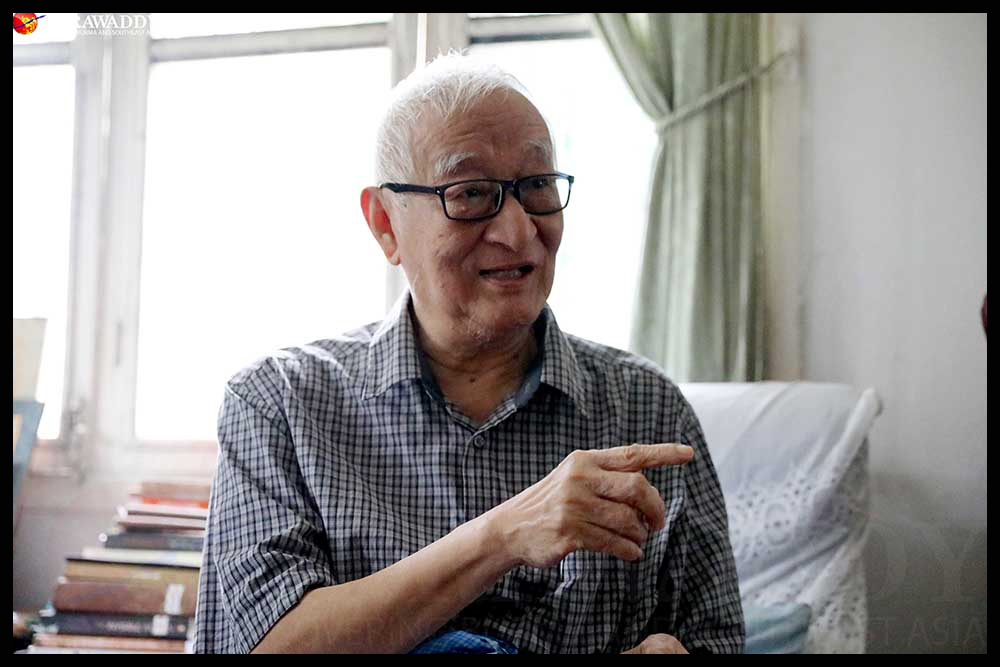
U Thaw Kaung
Scholar and Former Chief Librarian of Universities Central Library
How did you spend 2020?
I am 84 years old, and have been suffering from diabetes and high blood pressure. So, I stayed at home most of the time. The positive side of staying at home this year was that it enabled me to edit my array of writings on library studies, modern Myanmar literature and history, compiling them into a single volume. It is now being published.
Based on your lifelong experience, what do you think of what we faced in 2020?
I encountered World War II shortly before I was 10. I remember the evacuation with my family and staying at bomb shelters. Luckily, we all survived the war. In Myanmar, we had an epidemic like plague but never experienced a pandemic as bad as this one. But if you could manage to strictly follow the health guidelines issued by the Health Ministry, you could overcome it. I wear a mask when I need to go out.
What do you want to see in 2021?
I hope 2021 will be better than this year. Now the vaccine has been invented, and Myanmar has signed with India to secure it. That is good for the country. I pray for good health to all. At the moment, we all have to be patient and follow what the Health Ministry says.
What lessons have been learned?
We can’t take it for granted that there will not be a new pandemic in the future. So, we have to take preventive measures more seriously than before. Another thing is climate change. It will be getting more intense globally. So, be serious on environmental issues and preventions. And be prepared.
————————
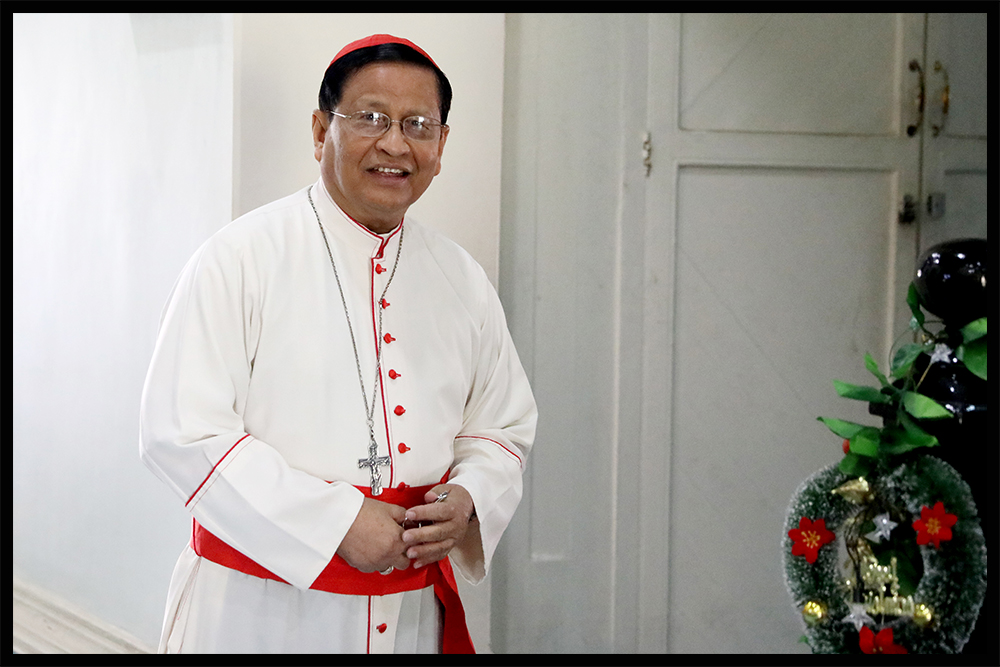
Cardinal Charles Bo
Archbishop of Yangon
What are your reflections on the year that is ending soon?
2020 brought us great challenges strong enough to feel like an “endless winter” or “nights without dawns.” Families suffered due to COVID-19. It indiscriminately affected every corner of the world and turned out to be one of the worst pandemics in human history. In Myanmar, people suffered not only from the coronavirus but also from poverty, war, displacements by armed struggles and human trafficking. COVID will be gone when the time comes. Armed conflicts in Myanmar have now lasted for more than 70 years.
What touched you deeply during the COVID-19 pandemic?
In Myanmar, everyone contributed as much they could in response to the virus. Despite being physically distanced from one another due to the disease, they helped each other as best they could and developed a family spirit. I really admired health workers and volunteers. When we fought the common enemy [COVID-19], all members of different religions joined hands like a big family. What a delight to see that! Helping each other in difficult times is an act of blessing.
What is your prayer for 2021?
A peaceful year for Myanmar when everyone in the country enjoys good health and wealth. St. Luke’s gospel says, “On Earth, peace to men of good will.” To become men of good will, you have to peacefully coexist with all the people in the country. That means, no manipulation of natural resources and eradicating the drug trade that ruins young people’s lives. Armed groups have to stop fighting for peace talks. You have to build a country with a good economy and environment. There must be no discrimination against race and religion. So, I pray for everyone to have good will. May all Myanmar people join their hands—like brothers and sisters—for peace and development of the country. Happy New Year!
————————-
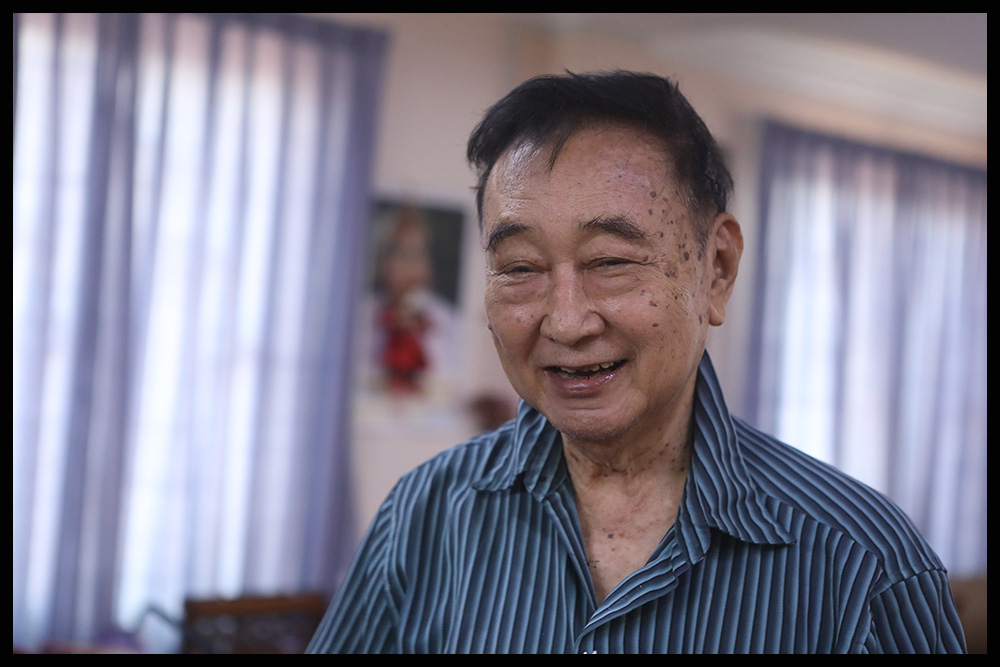
U Win Pe
Myanmar’s Leading Contemporary Artist
Do you think 2020 was an unusual year compared to previous ones?
What made it different, I think, is two 20s were juxtaposed together, and all people were in trouble! Myanmar has suffered the impact of COVID-19 beginning in March, and there are many related problems. So, there is no doubt that 2020 was a disastrous year.
How did it affect you personally?
As someone who normally spends much time at home painting, it didn’t make any difference. There were fewer visitors, so I became more productive, haha!
Did the pandemic make you think something positive?
I was seven years old when World War II arrived in Myanmar. I have also encountered plague in the country. Based on my experience, it took years then to have a vaccine. I believe this time is totally different as we have gotten a vaccine in a short time because science and technology have dramatically advanced these days. That’s why I told my children not to be worried that much and consoled myself.
———————————-
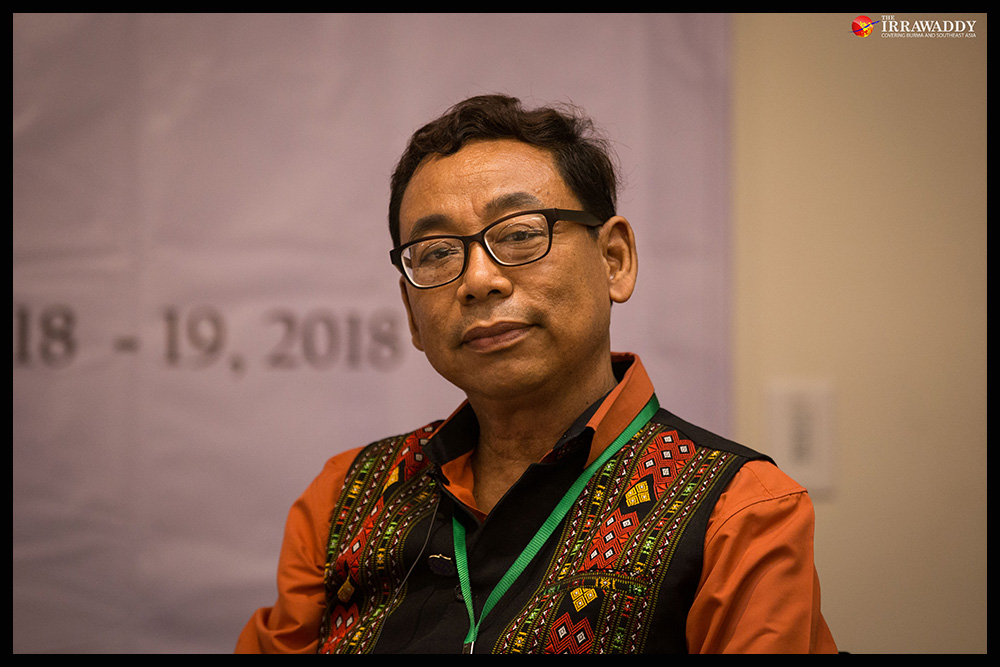
U Aung Myo Min
Human Rights Activist and Director of Equality Myanmar
What is your take on the outgoing 2020?
On the human rights front, Myanmar has not seen any progress. Some repressive laws on freedom of expression and assembly are still in effect, while injustice is rampant in war zones in some ethnic areas of the country. Those are challenges for human rights activists. International pressure on the Rohingya issue has also tarnished the country’s image, partly due to the government’s weak participation in international relations.
How did COVID-19 affect you personally?
Coping with the “new normal,” adapting to something we have still not gotten used to. I have to work mostly online these days. To my dismay, the coronavirus did not permit us to conduct the human rights public awareness campaign that Equality Myanmar normally conducts in December. It was online instead. I want to go out and meet with people. I feel sort of under pressure being confined at home. It’s the worst global health issue I have ever experienced.
Did you see any silver linings in the pandemic?
I have witnessed that people can still manage to be connected by all means— digitally in this case—showing undefeated human spirit, especially in these globally unsettling times. Plus, there has been a strong sense of sympathy and compassion among people during the pandemic. Health workers and volunteers are taking risks to help others, while religious groups—from Buddhist to Christian to Muslim—are still trying to reach out to everyone in need. I noticed that there is no racial and religious discrimination when people are trying to fight against COVID-19, since the disease can indiscriminately infect anyone. I feel people are behaving more humanely at this time.
What are your expectations for the incoming year?
I have high hopes for 2021 because we are going to have a new government. I want to have a government that is aware of people’s situations and works both for the people and with the people. Globally, I hope to see a world that is free from war and disease, while human rights, equality and development are restored.
——————————–
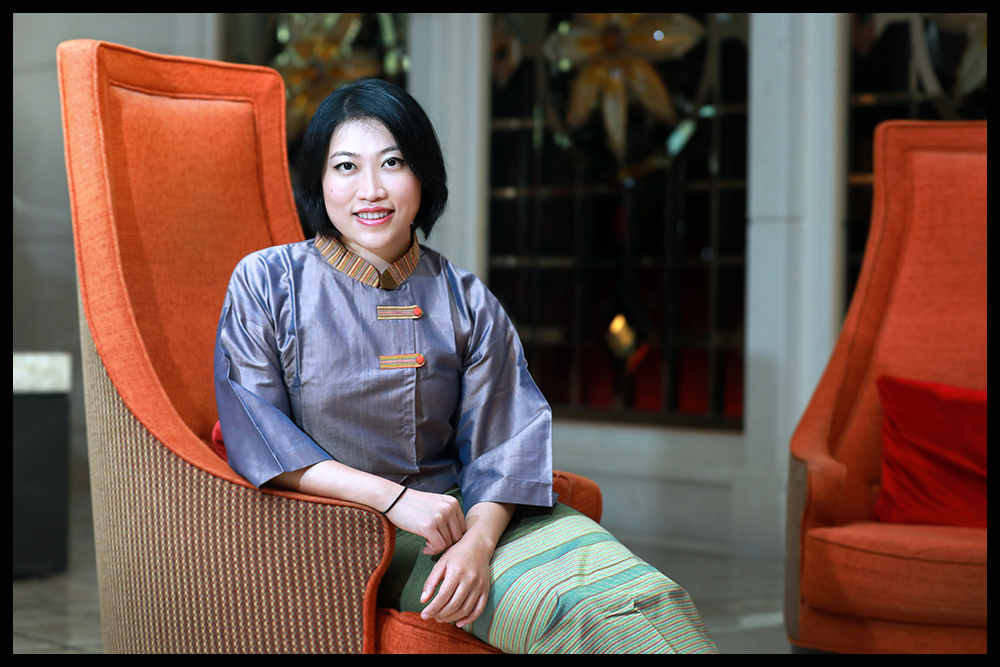
Nang Lang Kham
Director of KBZ Bank
What does 2020 mean to you?
I have to say it’s a year that pushed businesses to go digital unavoidably. COVID-19 was the trigger point to make it happen, I think. Our KBZ bank is the same. We have been preparing for digitalization for years. But we did it this year, and we saw the growth due to this digital transformation. For example, during the pandemic, the amount of money transferred via KBZPay, a payment system via a mobile phone, grew more than five times higher than the previous year. This shows that the pandemic accelerated the move to digital adoption by the Myanmar people.
How did these unsettling times affect you?
I have learned a lot. 2020 was a test for my resilience in the face of uncertainty. Globally, we had no idea what would happen the next day, with some variants of the virus despite the invention of the vaccines. There were COIVID-19 restrictions out there. I had to make some decisions within 24 hours, taking some risks as well, to keep the bank running. I have never been under that kind of pressure before. I took them all as good lessons for me. As the bank is still in operation, I think I have successfully coped with what I faced.
What was the positive side of 2020?
People were united and supportive in the fight against COVID. I saw charities set up for the vulnerable. We also helped them [charities], having made our own contributions since the beginning as well. Witnessing such “good Samaritan” activities encouraged us to contribute more.
What are your thoughts and plans for 2021?
What I have been thinking of lately is a digital-led recovery to adapt with COVID-19 because we don’t know how long it will be there and consumers’ behaviors have gone online from shopping to making payments. So, we need to be courageous to adapt our lifestyle and businesses in 2021 with the “new normal.” Personally, I want to travel to Shan State as I have been confined in Yangon since January. I want to take a slow train from Kalaw to Nyaungshwe, where the Inle Lake is located. It must be amazing to see small villages engulfed in the mist in the cold season.
———————————-
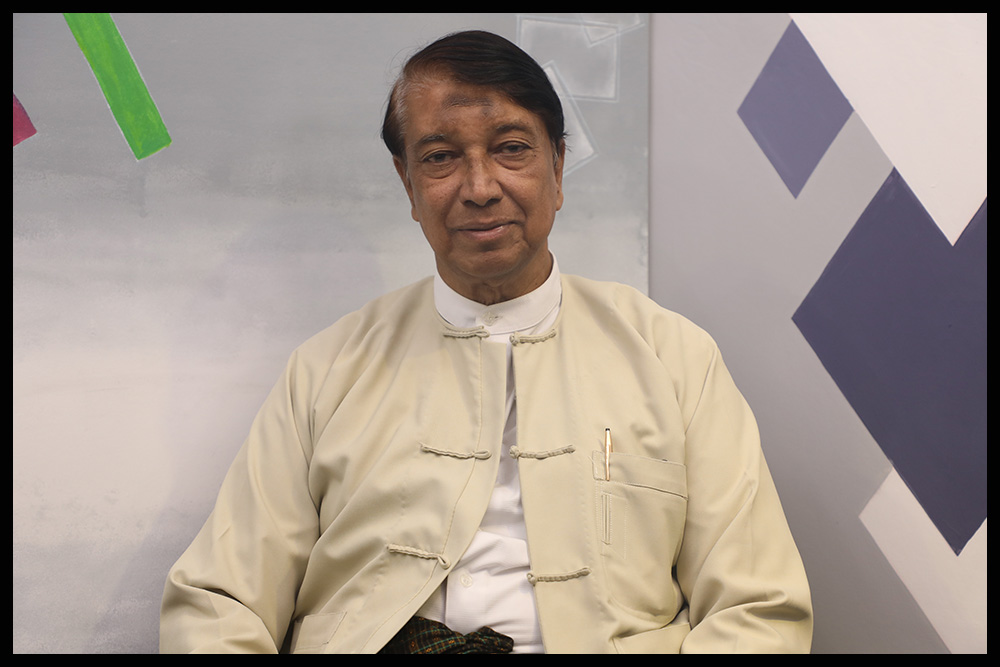
Al-Haj U Aye Lwin
The chief convener for the Islamic Center of Myanmar
What does 2020 mean to you?
I have to say it was a year of many challenges. A microorganism like the coronavirus has not only threatened humanity but nature’s order. But humans can’t be defeated. With the invention of the vaccine, there’s a light at the end of the tunnel.
Have any lessons been learned?
We used to rely too much on physical contacts to get our work done. Now it’s very evident that we can make things happen due to information technology. You can pray online. You don’t even feel isolated from loved ones even though you are physically distanced. The fight against COVID-19 is the best example proving that men don’t stand alone and it’s time to realize that unity is strength. We will have to bring what we learned into 2021.
You are 72 years old now, and what is your judgment on the impacts of the pandemic this year based on your experience?
When we judge something good or bad, our judgment is based on our perception of a particular issue. From an Islamic teaching point of view, I believe what we have experienced [this year] is nurturing our endurance and making us stronger in the face of something bad. It is something like this: If you want a pure piece of gold, you first have to remove the dirt in it with acid. I think the disease has provided a training ground for all of us to work in unity and wholeheartedly. So, I prefer to describe it as “an unusual year” rather than the worst.
———————————————
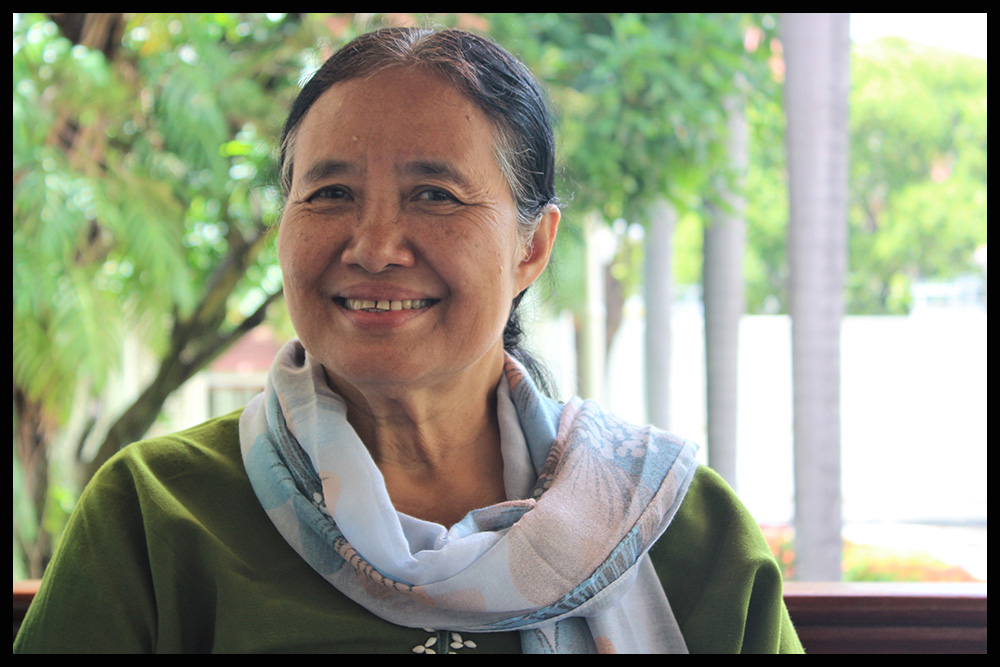
Dr. Cynthia Maung
Founder of Mae Tao Clinic on Thai-Myanmar border
What do you think of 2020, from your perspective of a medical doctor as well as a humanitarian worker?
Providing health care in armed conflict areas and COVID-19 were both public health emergency issues in 2020. Whether because of the pandemic or armed conflict, peoples’ daily lives are no longer in normal—from securing food to finding jobs to sanitation. I found some weaknesses in terms of transparency and collaboration in both receiving and managing humanitarian aids. We still need to fill the gaps between people and aid providers or between aid providers and policy makers. This year also highlighted the fact that peace, justice, development and humanitarian issues have to be carried out not separately but simultaneously by political leaders, civil society organizations and international aid agencies. Especially, the need for empowerment of people at the local level is also getting clearer.
Is 2020 the worst year in your lifelong experiences?
I am afraid to say so. Based on my experience after 1988, we have had some public health emergencies like malaria or battle-related medical issues on Thai border, where many fled wars in their areas. There were other disasters like flooding in 1992 and our medical facilities were burnt down in 1997 and ’98 due to fighting. That’s what we had experienced one after another. For me, those experiences were as hard as what we now see during COVID-19. Yes, the virus gave us a new experience, but we can’t say it’s the worst. Still, it’s important to be cautious especially when it comes to infectious disease prevention and surveillance. Every experience brings you some lessons learned. What I think is, inside the country, on the border as well as in ethnic areas, we need to formulate a collective voice and action based on lessons learned from COVID-19 as well as from the conflicts. Only then can we solve the problems faced in the area of equality policies, especially on economic, social and peace building issues.
How do you assess the impact of COVID-19 on migrant workers? How did COVID-19 affect migrants and the Mae Tao clinic?
It has had a serious impact on Myanmar’s migrant community as well as their families back home in Myanmar because they normally send money back to them. More hard hit are those in Mon and Karen States. At the clinic, normally 45 to 50 percent of our patients came from Myanmar. Now we have around 20 percent that have been admitted since March. After that no patients from the country were be able to come due to the outbreak. We also saw a drop in patient numbers partly because we suspended some non-emergency services since the onset of the outbreak. Maternity care, obstetrics and other essential clinical activities are still going on.
Would you like to share any lessons learned during the time of COVID-19?
When we deal with the migrant community along the border, what is becoming more evident is that you can’t just focus on health or economic issues but need something more comprehensive that could only happen through collaboration between relevant departments. During the pandemic, there were some who wanted to open borders due to trade concerns while others didn’t want to because of virus preventive measures. It means that collaboration between departments as well as Thai and Myanmar governments was really required. So, those should be lessons learned for Myanmar.
What do you like to see in 2021?
I wish for fair health coverage for migrants out there because they can’t receive universal health coverage since it is based on citizenship. When you carry out health security, you can leave no one behind. That’s what I wish for, a health system in which everyone is fairly covered. I want to encourage individuals, civil society organizations, governments, and local administrations to take lessons from what we faced during COVID for more preparedness measures so we will be able to face any kind of disaster or epidemic or pandemic.
——————————-
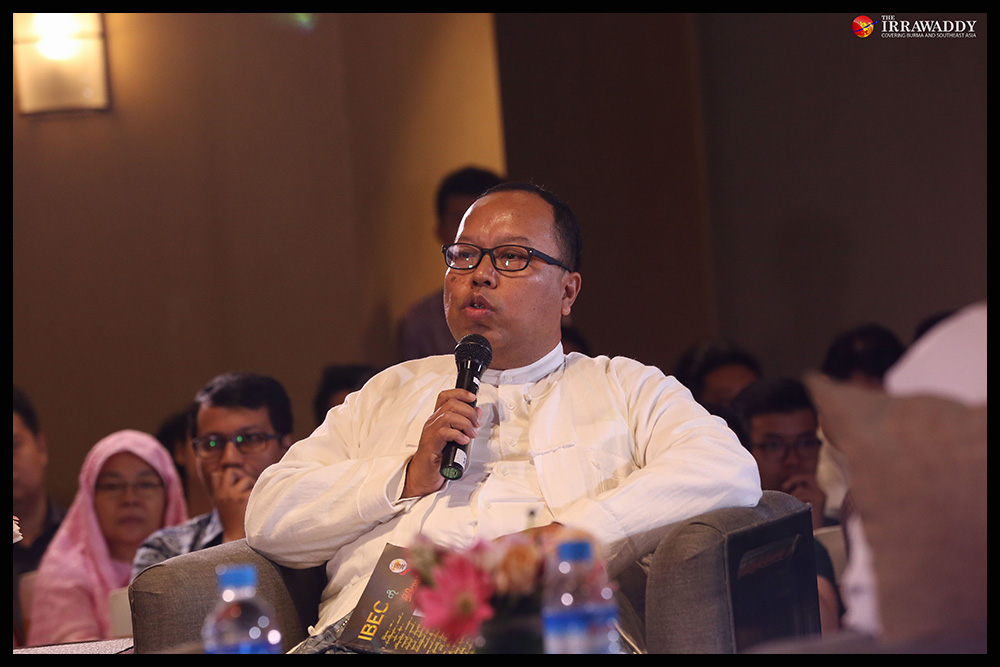
U Win Myo Thu
Co-founder and managing director of Advancing Life and Regenerating Motherland (ALARM)
What do you think of 2020?
It’s a year that made me feel grounded. Let me say it is the worst year I have ever experienced in my lifetime of 57 years. We faced some hard choices like whether to go ahead with the election amid surging COVID-19. The polls happened and infections soared. I can’t do some follow-up medical checkups due to travel restrictions. I had to furlough some of my staff members to keep ALRAM running. I worked with them for years and they are well trained. It really hurt me.
For your focus on the environment sector, did you see any development in 2020?
As someone involved in Resource Federalism sector in the country peace process, I have to say it was not a productive year because all discussions were halted due to the virus. I also wanted to get some environmental policies fixed. It didn’t happen. The National League for Democracy’s election manifesto this year is just mediocre on environmentalism, just echoing what the previous military regime said years ago.
Were there some blessings in disguise for you?
Yes! It is Daw Aung San Suu Kyi’s international commitment to reduce the country’s carbon emissions by hundreds of millions of tons. It’s really fabulous. We have been pushing it for years and failed because of huge resistance. Now she did it.
As an environmental conservationist, the most difficult part I have found is how to explain biodiversity to people during public awareness campaigns. If you talk about deforestation and flooding, they could easily get it as they have experienced them. But when you say, “You need to conserve this tiger or this plant,” they respond, “So what?” Now, I can take COVID-19 as an example to say the pandemic strong enough to affect the entire world was caused by damage to biodiversity like the extinction of this or that animals and plants. I hope it will work.
Any hopes for 2021?
I hope the NLD would not be politically arrogant just because they have won, let me say, more than landslide. It’s heartening to see people gave their mandate wholeheartedly. I hope they wouldn’t think something like, “No need for consensus building,” when working on minority rights for ethnic people. But, since they are going to meet with ethnic parties, I now feel relieved.
——————————-
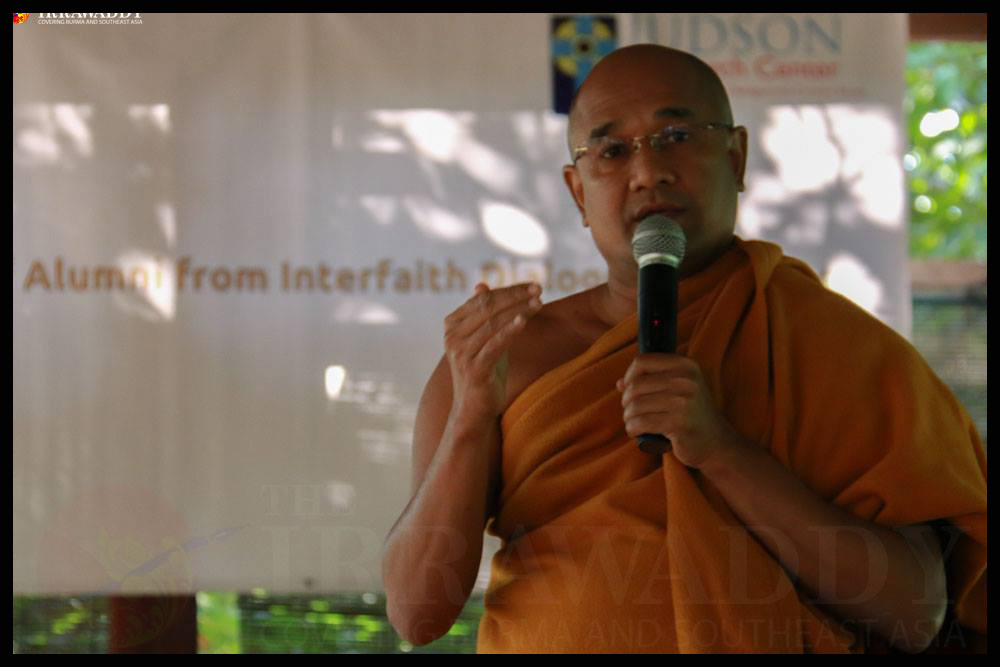
Ashin Pyinnyaw Bhatha
Founder, Pann Pyo Let Buddhist Monastic School
What have you experienced so far this year?
I have encountered a pandemic in my life this year. I can’t hold talks on Buddha’s teachings due to COVID-19. So, there are no cash donations. My charity work solely depends on the money coming from the talks. So far, so good. But if it keeps going like that for a long time, it will pose challenges to pay the teachers and other staff. The good thing is, I have more time to read and meditate. I administered the last rites via online for those who died. I am witnessing illness and deaths as I have opened a COVID-19 quarantine center in my compound, realizing that I could be a victim any time.
What did you make the most of the pandemic?
I told people around me that of course COVID-19 is very annoying. But don’t let it get you down because we are not alone suffering from it. I explained to them their stay-at-home situation was far better than what political prisoners had faced in their confinement. I told them you had luxury to fiddle with your phones, watch TV and spend time with family so that there was no way to feel bad. I also encouraged them to spare some time to worship. I also spent more time with my hostel students and felt closer to them.
So, what is the bad side of COVID-19?
Many. But I want to focus on education. It’s OK for children in well-to-do families as their private school offered online learning. What about others less fortunate? The government can’t afford to conduct virtual learning. All government and monastic schools like mine ceased operation the whole year. What a wasteful year for the kids! What if it happens the same way next year? It’s quite worrisome.
What are your prayers for 2021?
We don’t know when COVID will be gone. I wish people would be more disciplined to adapt to the “new normal.” For the government, it would be great if they take lessons from the previous term to improve themselves for the betterment of the people. I hope for more loving kindness among different religions takes root now that we have seen members of different faiths join hands in unity when they responded to the virus. It’s the best portrayal of loving kindness. Let’s bring it to 2021.
——————————–
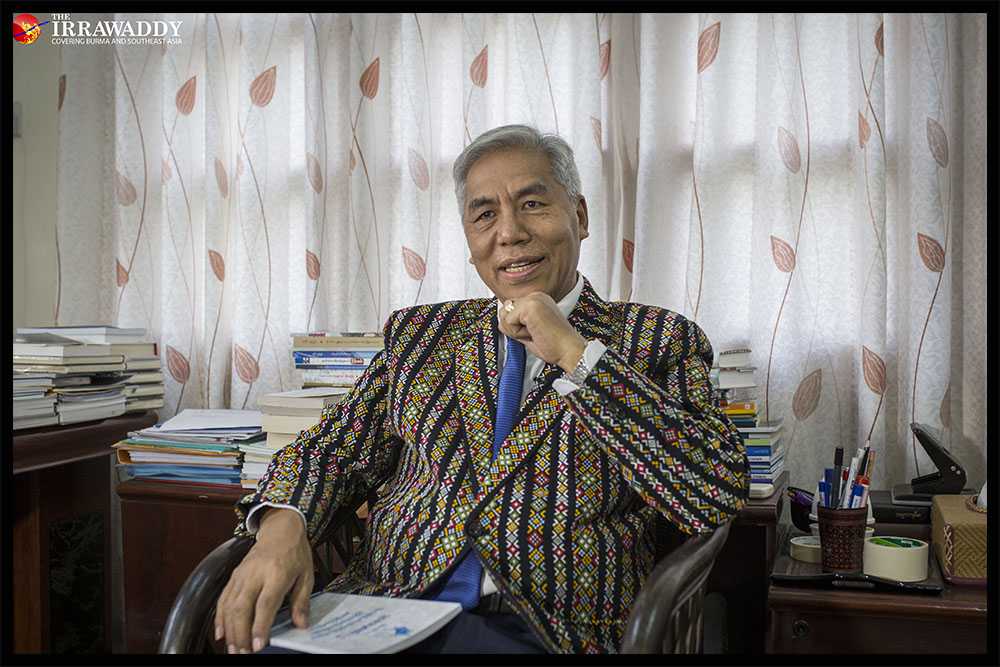
Dr. Salai Lian Hmung Sakhong
Vice Chair 2 of the Union Peace Dialogue Joint Committee (UPDJC)
How would you assess the Myanmar peace process in 2020?
Regarding the peace process, we have seen much progress in 2020. We had the Joint Implementing Coordination Meeting (JICM) for peace process in January and then the Union Peace Dialogue Joint Committee meetings were held in March. However, the peace process was a little delayed when the pandemic hit Myanmar in late March. But the [latest] session of the 21 st -Century Panglong Peace Conference was held in August. From that talk, we can say peace process has progressed, because we agreed that we would build a Union based on democratic and federal principles. Then these democratic principles and federal principles must be incorporated into the Union accord. This is our effort.
Until 2020, the NLD had little interest in those democratic and federal principles. The State Counselor Daw Aung San Suu Kyi raised the five basic federal principles during her address on Oct. 28, 2019 (during the high-level meeting with the ethnic armed organizations leaders). Then these principles were discussed in August 2020.We agreed to most of the principles, except on the drafting of State Constitution, which is the most important element. It was not agreed because of the choice of word in Burmese, which is literally translated either State Constitution or State Basic Law.
What are your expectations for 2021?
Our biggest expectation for 2021 is that we will further discuss those five federal principles and incorporate them into Union Accord. We should be able to do that because NLD won the November general election. Once it is inked into the Union Accord, we can start the implementation process for building a Union based on the democratic and federal system. I’d like to raise two things. If we could agree on the issue of drafting State Constitutions, we could start the drafting process for all seven states and seven regions in 2021. This is a big task, which needs a lot of manpower, financial assistance and technical support. Likewise, if we can achieve a basic democratic principle–an important aspect of democratic principle–that the security forces must be under the control of a civilian government, we can work on the security reintegration or the issues of disarmament, demobilization and reintegration (DDR) and security sector reform (SSR). For that we would also need a lot of manpower, financial and technical support.
How could we move forward the peace process?
In 2021, we have to change our method of working. Instead of holding a UPDJC or Joint- ceasefire Monitoring Committee meetings every two or three months, I’d like to suggest the NLD’s new government think about creating a ministry for peace building so that we could work on the implementation process. This ministry must work full time on the peace issue and do further implementation on drafting state constitutions or the DDR/SSR process. It must be supported by the parliamentary fund and run with a technically-capable staff and given a full mandate. If not, our peace process would be the same as previous years and would be delayed further.
You may also like these stories:
Movers and Shakers of 2020: The Irrawaddy’s Persons of the Year
The Most Popular Stories of 2020
Myanmar-China Relations: 2020 Review

















